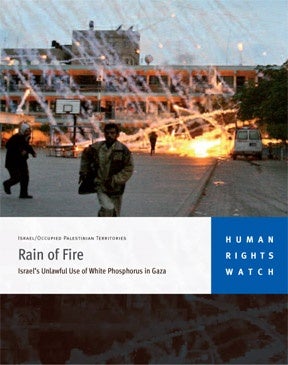Listen, Run, Hide
Since the summer of 2024, Russian forces have increasingly armed quadcopter drones and used them to chase, injure, and kill residents living in the southern Ukrainian city of Kherson.


Since the summer of 2024, Russian forces have increasingly armed quadcopter drones and used them to chase, injure, and kill residents living in the southern Ukrainian city of Kherson.


How Russia Uses Quadcopter Drones to Hunt and Kill Civilians in Kherson, Ukraine

The 28-page report, “Beyond Burning: The Ripple Effects of Incendiary Weapons and Increasing Calls for International Action,” examines recent use of incendiary weapons in armed conflicts and their wide-ranging impacts. Human Rights Watch presents case studies of the Israeli military’s use of white phosphorous—a weapon with incendiary effects—in the Gaza Strip and Lebanon since October 2023, and the use in Ukraine and Syria of other types of incendiary weapons. Human Rights Watch also details the growing interest of many countries in addressing the multiple humanitarian concerns raised by incendiary weapons.

The 45-page report, “‘They Burn Through Everything’: The Human Cost of Incendiary Weapons and the Limits of International Law,” details the immediate injuries and lasting physical, psychological, and socioeconomic harm of incendiary weapons, including white phosphorus, used by parties to recent conflicts. Countries should revisit and strengthen the international treaty governing these weapons, which burn people and set civilian structures and property on fire, Human Rights Watch concluded.
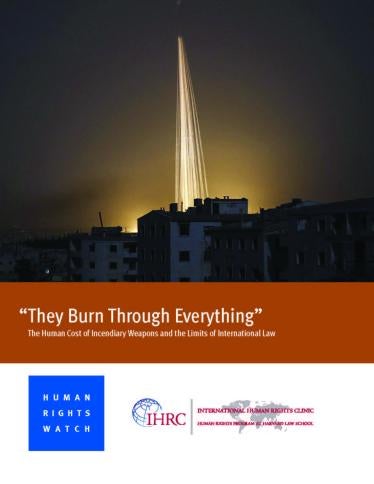
This report found that statements by US military authorities after the attack indicate that they failed to understand that the targeted building was a mosque, that prayer was about to begin, and that a religious lecture was taking place at the time of the attack. A proper analysis of the target and its use would probably have established at least some of these elements. Human Rights Watch has not found evidence to support the allegation that members of al-Qaeda or any other armed group were meeting in the mosque.
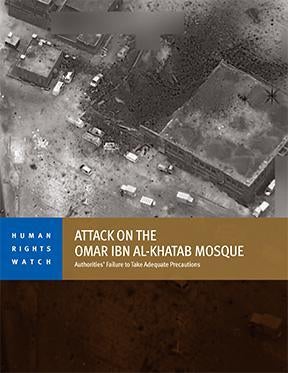
This report looked at destruction of homes between September 2014 and May 2016 in disputed areas of Kirkuk and Nineveh governorates, areas nominally under Iraqi government jurisdiction but under Kurdistan Regional Government (KRG) control. The destruction, which took place after KRG Peshmerga forces routed Islamic State (also known as ISIS) fighters, targeted Arab homes while leaving Kurdish homes intact. KRG leaders have maintained that these are historically Kurdish areas that they intend to incorporate into the Kurdistan region.
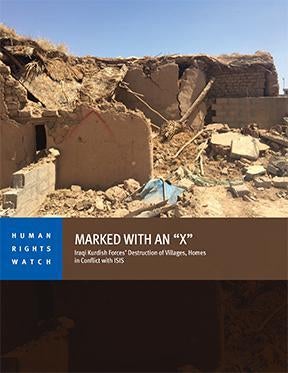
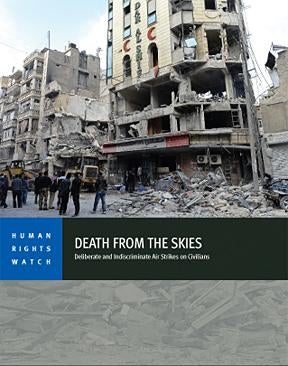
This 71-page report provides witness accounts of the devastating effects that white phosphorus munitions had on civilians and civilian property in Gaza.
